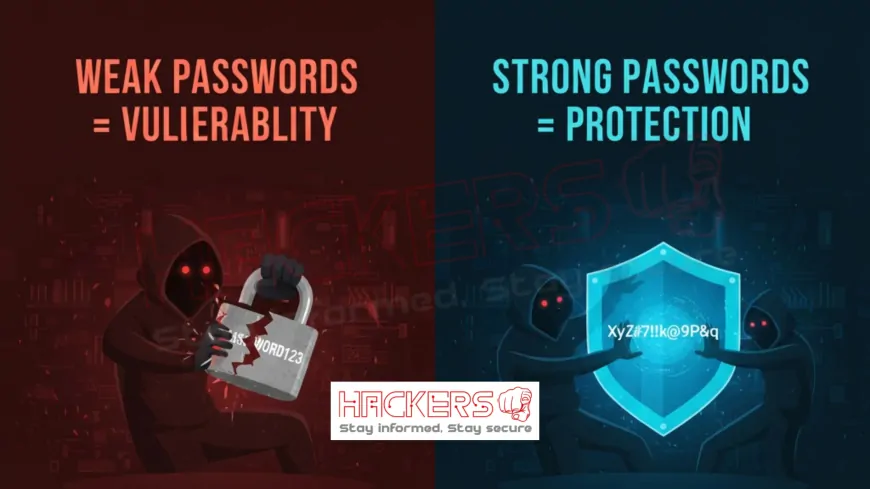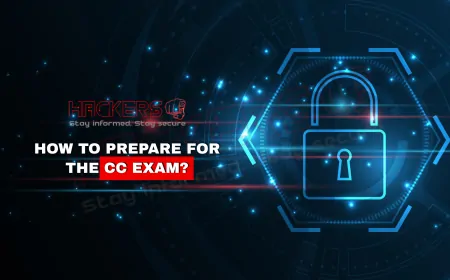How Do Hackers Exploit Weak Passwords and How Can You Stay Safe?
Imagine logging into your email one morning, only to find your bank account drained and your personal photos shared online. This nightmare became reality for millions last year, all because of a simple oversight: a weak password. In 2025, with cyber threats more advanced than ever, hackers are feasting on easy targets like "123456" or "password." Reports show that 3.8 billion credentials were leaked in the first half of this year alone. These breaches cost businesses and individuals billions, but the good news is that you can fight back. This blog post will explore how hackers crack weak passwords, share real examples, and provide straightforward tips to protect yourself. Even if you're not tech-savvy, you'll learn simple steps to boost your security and sleep better at night.

Table of Contents
- What Makes a Password Weak?
- Common Methods Hackers Use to Exploit Weak Passwords
- Real-World Impacts and Statistics
- How to Create Strong Passwords
- The Role of Password Managers
- Enabling Multi-Factor Authentication
- Additional Tips for Staying Safe
- What to Do If Your Password Is Compromised
- Conclusion
- Frequently Asked Questions
What Makes a Password Weak?
A weak password is like leaving your front door unlocked in a busy neighborhood. It's easy for anyone to guess or crack. Common culprits include short strings like "abc123," common words such as "letmein," or personal info like your birthday. In 2025, the most used passwords remain shockingly simple: "123456" tops the list, followed by "111111" and "admin." These are weak because they're predictable.
Length matters too. Passwords under 12 characters are cracked in 88 percent of cases. Reusing the same password across sites is another big mistake: 94 percent of passwords are duplicated across accounts. If one site gets breached, all your accounts are at risk. Weak passwords lack variety: no mix of uppercase, lowercase, numbers, and symbols. But even with that, short ones fall fast to modern tools.
Think about it. Hackers use powerful computers with GPUs that guess billions of combinations per second. A password that took years to crack a decade ago might now take minutes. This vulnerability turns everyday online activities into potential disasters.
Common Methods Hackers Use to Exploit Weak Passwords
Hackers have a toolbox of tricks to exploit weak passwords. Let's break them down simply.
First, brute force attacks. This is like trying every key on a ring until one fits. Computers automate it, guessing combinations rapidly. With 12 RTX 5090 GPUs, simple passwords crack instantly. Weak ones with few characters succumb quickly.
Dictionary attacks use lists of common words and phrases. Hackers run through dictionaries, adding variations like "password1." If your password is in a common list, it's toast.
Credential stuffing is sneaky. Hackers take leaked usernames and passwords from one breach and try them on other sites. Since many reuse passwords, this works often. In 2025, with 16 billion passwords leaked, this method thrives.
Phishing tricks you into giving your password. Fake emails or sites mimic trusted ones, luring you to enter details. Social engineering plays on trust or fear.
Keyloggers are malware that record keystrokes. If infected, hackers capture passwords as you type. Rainbow table attacks use precomputed hashes to crack encrypted passwords fast.
Offline cracking happens after stealing a database. Without lockouts, hackers crack at leisure. These methods show why weak passwords are easy prey.
Real-World Impacts and Statistics
The consequences of weak passwords are stark. In 2025, password cracking succeeds in 46 percent of environments, leading to 98 percent of attacks exploiting valid accounts. Businesses face average breach costs of millions, but individuals suffer too: identity theft, financial loss, privacy invasion.
One example: a major breach leaked billions of credentials, fueling more attacks. People lost savings to fraudulent transfers. Another case: weak admin passwords let hackers into company networks, stealing data.
Stats paint a grim picture. Users manage 168 personal passwords on average. 81 percent of breaches involve weak or stolen credentials. These numbers highlight the urgent need for better habits.
Impacts extend to mental stress: dealing with fraud recovery takes time and energy. For businesses, reputational damage can be fatal. Understanding these helps motivate change.
How to Create Strong Passwords
Creating strong passwords is easier than you think. Focus on length: aim for at least 15 characters, as recommended by NIST. Longer is better; it makes cracking exponentially harder.
Use passphrases: string words together like "BlueHorseBatteryStaple." Easy to remember, hard to guess. Mix in numbers and symbols if needed, but length trumps complexity.
Avoid common patterns: no sequential numbers or keyboard walks like "qwerty." Don't use personal info; hackers research social media.
Change defaults: devices come with weak passwords; update them immediately. Test strength with online tools, but never enter real passwords.
Here's a table showing how long it takes to crack passwords based on 2025 tech, inspired by Hive Systems:
| Password Length | Composition | Time to Crack |
|---|---|---|
| 8 | Numbers only | Instantly |
| 12 | Letters, numbers | 2 weeks |
| 15 | Letters, numbers, symbols | Thousands of years |
| 20 | Letters, numbers | Millions of years |
This table illustrates why longer passwords win. Start implementing these today.
The Role of Password Managers
Managing many strong passwords is tough. Password managers help. These tools store and generate complex passwords securely.
How they work: You remember one master password; the manager handles the rest. It autofills logins, reducing phishing risks. Popular ones like Bitwarden or LastPass encrypt data.
Benefits: No reuse, automatic updates after breaches. In 2025, with 168 passwords average, they're essential.
Choose reputable ones with good reviews. Free versions often suffice for individuals. They make security convenient.
Enabling Multi-Factor Authentication
Multi-factor authentication (MFA) adds layers. Even if hackers get your password, they need more: a code from your phone or fingerprint.
Why it works: Blocks 99 percent of automated attacks. Use app-based codes over SMS for better security.
Enable it on all accounts: email, banking, social media. It's free and quick. Phishing-resistant MFA, like hardware keys, is even better.
Without MFA, weak passwords are sitting ducks. Make it a habit.
Additional Tips for Staying Safe
Beyond basics, monitor for breaches: sites like Have I Been Pwned alert if your email's compromised.
Educate yourself: learn phishing signs. Update software: patches fix vulnerabilities.
Use VPNs on public Wi-Fi. Be cautious with sharing info. For businesses, train employees and use enterprise tools.
Screen for compromised passwords: NIST recommends this. These tips build comprehensive protection.
What to Do If Your Password Is Compromised
If breached, act fast. Change the password immediately, then others if reused.
Enable MFA if not already. Monitor accounts for suspicious activity. Report to authorities if fraud occurs.
Contact affected services. Use credit monitoring. Learn from it: strengthen habits.
Quick response minimizes damage. Don't panic: steps can recover control.
Conclusion
Weak passwords are a hacker's dream, exploited through brute force, stuffing, and more. With billions leaked in 2025, risks are high. But by creating long passphrases, using managers, enabling MFA, and staying vigilant, you can protect yourself. These simple steps turn vulnerabilities into strengths. Start today: review your passwords, add layers, and share knowledge. A secure digital life is within reach.
What is a weak password?
A weak password is short, simple, or predictable, like "123456" or common words.
Why do hackers target weak passwords?
They're easy to guess or crack with tools, giving quick access to accounts.
What is brute force?
It's automated guessing of combinations until the right one is found.
How does credential stuffing work?
Hackers use leaked passwords from one site on others, exploiting reuse.
What are dictionary attacks?
They use lists of common words and variations to guess passwords.
Why is password reuse dangerous?
One breach exposes all accounts using the same password.
How long should passwords be?
At least 15 characters for strong security.
What is a passphrase?
A string of words like "CorrectHorseBatteryStaple," easy to remember but hard to crack.
Do password managers help?
Yes, they generate and store unique strong passwords securely.
What is MFA?
Multi-factor authentication adds extra verification beyond passwords.
Why avoid SMS for MFA?
It's vulnerable to SIM swapping; use apps instead.
How to check if breached?
Use sites like Have I Been Pwned to scan your email.
What if my password is compromised?
Change it immediately, enable MFA, monitor accounts.
Are biometrics safer?
Yes, fingerprints or face ID add security layers.
Why update software?
Patches fix vulnerabilities hackers exploit.
How fast can hackers crack passwords?
Simple ones instantly; complex ones take years with 2025 tech.
What are common passwords to avoid?
"123456," "password," "qwerty," personal info.
Is passwordless future?
Yes, with biometrics and keys, reducing password reliance.
How to educate family?
Share tips, demonstrate managers, discuss risks.
Why length over complexity?
Longer passwords resist cracking better than short complex ones.
What's Your Reaction?









































































